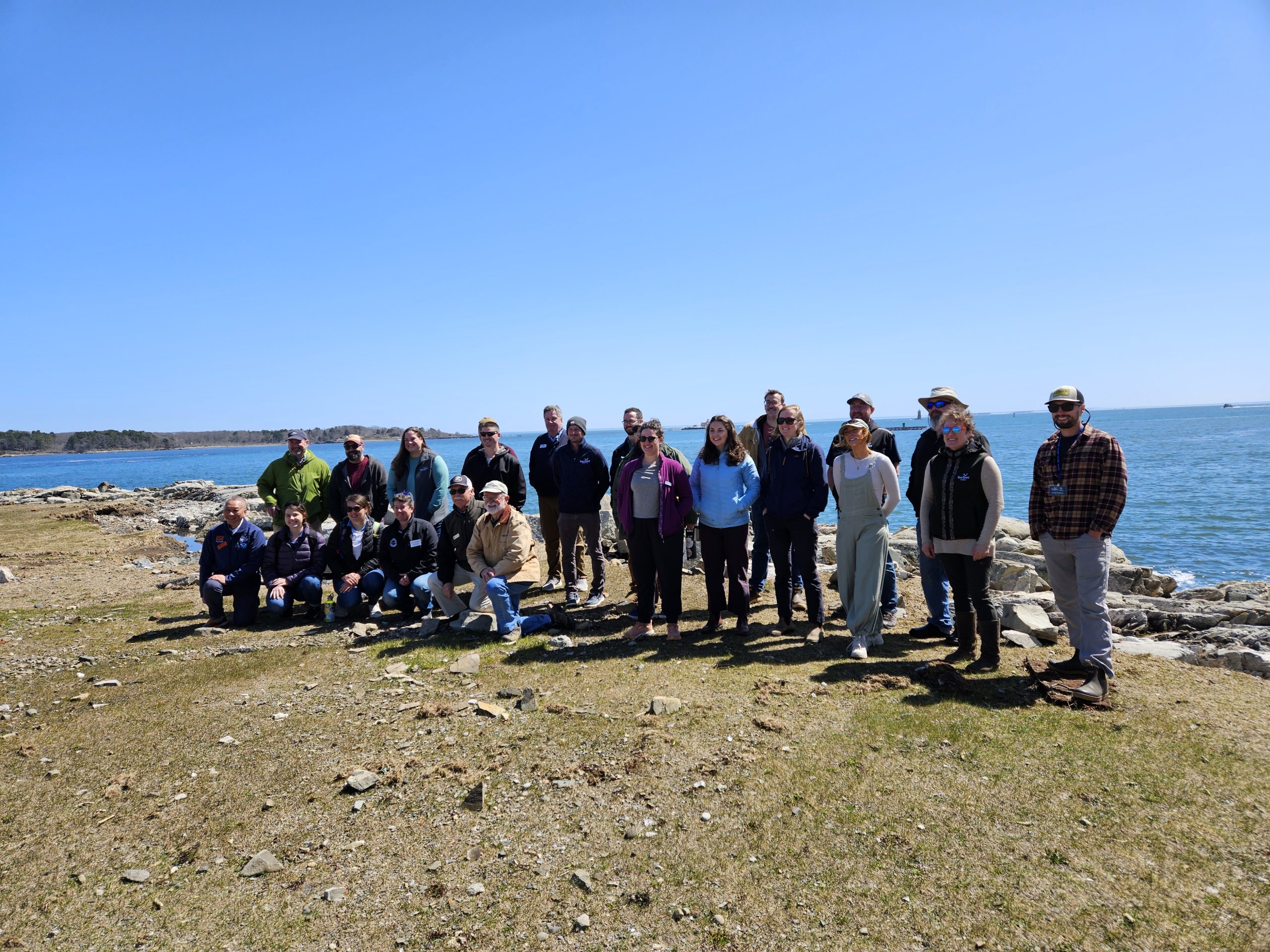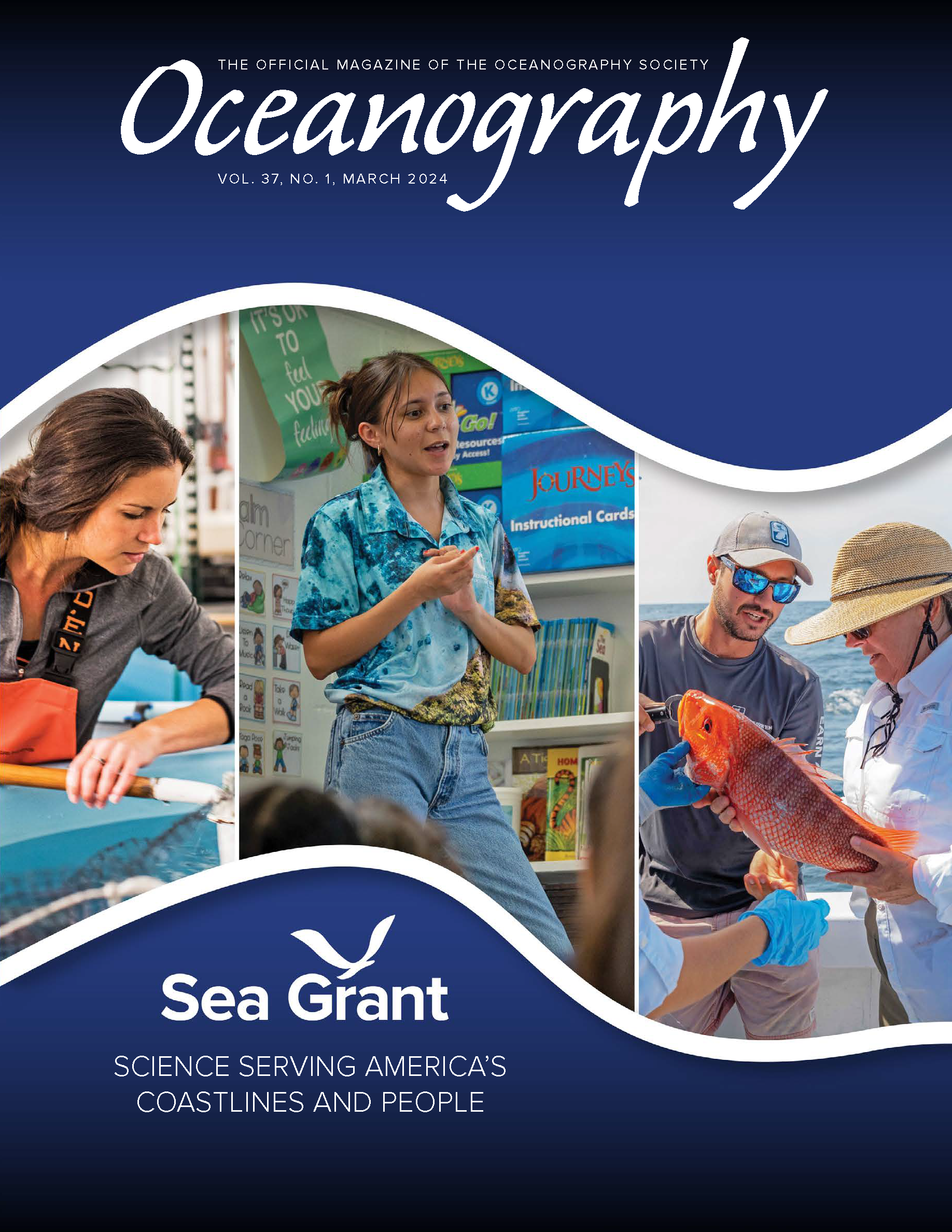Sea Grant and NOAA Fisheries are pleased to announce the 2022 National Marine Fisheries Service (NMFS)-Sea Grant Joint Fellowship recipients. Seven population and ecosystem dynamics fellowships and one marine resource economics fellowship will be awarded through this national program.
Since 1999, the NMFS-Sea Grant Joint Fellowship program has trained the next generation of specialized experts in fisheries management. The program addresses the critical need for future fisheries scientists with expertise in stock assessment by supporting students pursuing doctoral degrees in related fields.
The field of population and ecosystem dynamics is vital to making high quality fishery stock assessments in order to properly manage U.S. fisheries. Fellows’ research focuses on modeling and managing systems of living marine resources, which includes quantitatively assessing the status of marine ecosystems, fish, invertebrates, marine mammals, seabirds and other targeted and protected species. The marine resource economics fellowship concentrates on economics related to the conservation and management of living marine resources.
“Through the NMFS-Sea Grant Fellowship Program, this year’s class of talented fellows will advance their scientific and technical skills while informing current sustainable fisheries and environmental management challenges,” said Jonathan Pennock, Ph.D., National Sea Grant College Program director. “We are excited to welcome the incoming fellows and see where their research interests will take them in the future.”
Fellows are chosen through a competitive process that involves national review by an expert panel. The 2022 fellows are geographically diverse, attending universities in Alaska, California, Florida, Michigan, Massachusetts, New York, North Carolina and Washington. See some of the words they use to describe themselves and their work in the word cloud below.
During their fellowship, fellows are guided by at least two mentors, one from the fellow’s university and one from NOAA Fisheries, and they are required to participate in a yearly research symposium.
This year’s NMFS-Sea Grant Fellowship Research Symposium will take place concurrently with the annual American Fisheries Society meeting (August 21-25) in Spokane, Washington. Combining these events offers an opportunity for fellows to network with fisheries professionals and share their science with the larger fisheries community. During the symposium, fellows who have completed at least the first year of their fellowship will present updates on their research. The gathering will also include a professional development workshop for fellows on science communication, resume building and career opportunities.
Since the fellowship began, it has supported over 100 population and ecosystem dynamics and 38 marine resource economics doctoral fellows. Alumni of this fellowship typically hold future positions in NOAA Fisheries, other agencies, academics and fishery management councils. To learn more about the field of fisheries management and how experiences like the NMFS-Sea Grant fellowships address the need for career development opportunities in this specialized field, see this report to Congress and this academic paper.
Meet the 2022 NMFS-Sea Grant Fellows below.
Marine Resource Economics Fellow:
Karl Aspelund
MIT Sea Grant
Massachusetts Institute of Technology
Faculty Advisor: Benjamin A. Olken
Project: Individual tradable quotas: Balancing impacts on efficiency and labor markets
Northeast Fisheries Science Center
NOAA Mentor: Min-Yang Lee
Population and Ecosystem Dynamics Fellows:
Johnna Brooks
North Carolina Sea Grant
North Carolina State University
Faculty Advisor: Jeffrey A. Buckel & Jie Cao
Project: Development of a novel seasonal size-structured, tag-integrated, state-space stock assessment model with application to an estuarine fish stock
Southeast Fisheries Science Center
NOAA Mentor: Kyle W. Shertzer
Emily Chen
California Sea Grant
University of California Berkeley
Faculty Advisor: Stephanie Carlson
Project: Incorporating age structure into pre- and post-season assessments of California’s salmon fishery
Southwest Fisheries Science Center
NOAA Mentors: Michael R. O’Farrell & William H. Satterthwaite
Matthew Marrero
Florida Sea Grant
Florida International University
Faculty Advisor: Alastair Harborne
Project: Modeling ecosystem-scale coral reef fisheries in South Florida using novel recreational fisher behavior data
Southeast Fisheries Science Center
NOAA Mentor: Matthew McPherson
Katrina Munsterman
Michigan Sea Grant
University of Michigan Ann Arbor
Faculty Advisor: Jacob E. Allgeier
Project: Incorporating consumer-producer feedbacks to quantify fish production on artificial reef habitats
Southeast Fisheries Science Center
NOAA Mentor: Matthew D. Campbell
Kristin Privitera-Johnson
Washington Sea Grant
University of Washington
Faculty Advisor: André E. Punt
Project: Methods for improving catch stability & informing assessment frequency
Northwest Fisheries Science Center
NOAA Mentor: Richard D. Methot
Genoa Sullaway
Alaska Sea Grant
University of Alaska
Faculty Advisor: Curry James Cunningham
Project: Applying an integrated population model to understand marine processes affecting Western Alaskan Chinook salmon productivity and aid in bycatch prediction
Alaska Fisheries Science Center
NOAA Mentor: Lauren A. Rogers
Sarah Weisberg
New York Sea Grant
Stony Brook University
Faculty Advisor: Janet A. Nye
Project: Advancing climate-informed, ecosystem-based fisheries management through food web modeling, indicator development and risk analysis in the rapidly warming Gulf of Maine
Northeast Fisheries Science Center
NOAA Mentor: Sean M. Lucey
Grant funds subject to the ability of federal appropriations.


